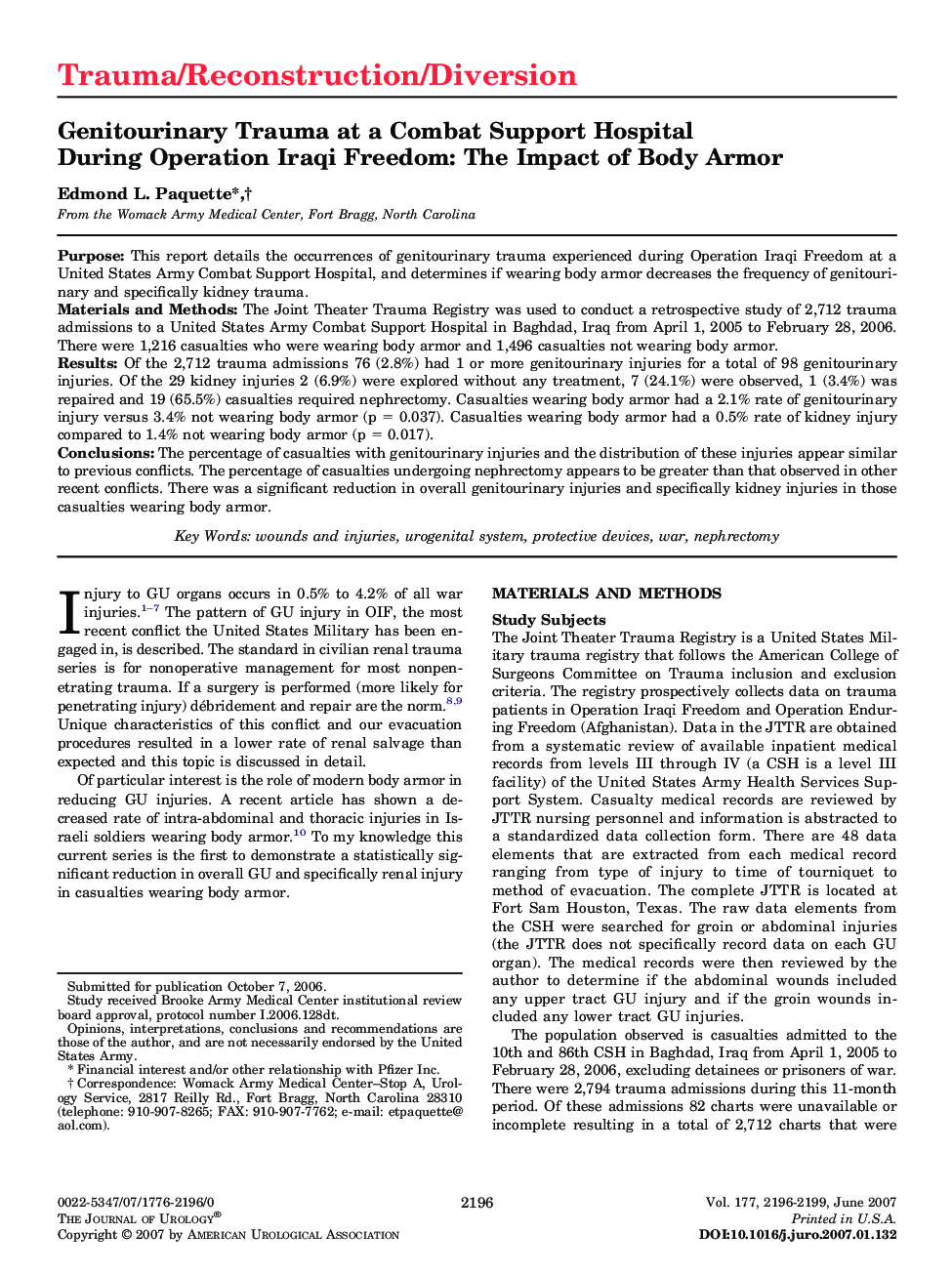| Article ID | Journal | Published Year | Pages | File Type |
|---|---|---|---|---|
| 3879397 | The Journal of Urology | 2007 | 4 Pages |
PurposeThis report details the occurrences of genitourinary trauma experienced during Operation Iraqi Freedom at a United States Army Combat Support Hospital, and determines if wearing body armor decreases the frequency of genitourinary and specifically kidney trauma.Materials and MethodsThe Joint Theater Trauma Registry was used to conduct a retrospective study of 2,712 trauma admissions to a United States Army Combat Support Hospital in Baghdad, Iraq from April 1, 2005 to February 28, 2006. There were 1,216 casualties who were wearing body armor and 1,496 casualties not wearing body armor.ResultsOf the 2,712 trauma admissions 76 (2.8%) had 1 or more genitourinary injuries for a total of 98 genitourinary injuries. Of the 29 kidney injuries 2 (6.9%) were explored without any treatment, 7 (24.1%) were observed, 1 (3.4%) was repaired and 19 (65.5%) casualties required nephrectomy. Casualties wearing body armor had a 2.1% rate of genitourinary injury versus 3.4% not wearing body armor (p = 0.037). Casualties wearing body armor had a 0.5% rate of kidney injury compared to 1.4% not wearing body armor (p = 0.017).ConclusionsThe percentage of casualties with genitourinary injuries and the distribution of these injuries appear similar to previous conflicts. The percentage of casualties undergoing nephrectomy appears to be greater than that observed in other recent conflicts. There was a significant reduction in overall genitourinary injuries and specifically kidney injuries in those casualties wearing body armor.
